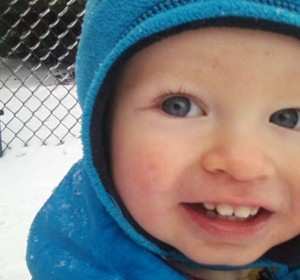 Meltdowns and temper tantrums are some of the most stressful situations that we will deal with as parents. I am often asked how a parent can get their child to stop having tantrums, especially in public. I wish there was a great way to do this, but there really isn’t. the best thing we can do for our children is change our thinking.
Meltdowns and temper tantrums are some of the most stressful situations that we will deal with as parents. I am often asked how a parent can get their child to stop having tantrums, especially in public. I wish there was a great way to do this, but there really isn’t. the best thing we can do for our children is change our thinking.
I don’t believe in punishment. And I also don’t believe that a small child/toddler “acts up.” Meltdowns and temper tantrums are a reflection of their emotional immaturity; they can’t process big feelings the way adults can and therefore it is expressed through their gross motor skills (the most advanced skills at that age). It is developmentally normal behavior. They feel overwhelmed, they are in distress, not being “naughty” or “rebellious” and therefore punishment is not effective or desirable and counterproductive. It is hard to change our thinking since we are told that children are supposed to be able to act like adults from a very young age. When in reality we are putting expectations on them that they are not capable of living up to. So, to many parents’ disappointment there is really no way to completely avoid meltdowns, especially in public when this tends to be a time when they are more stimulated and at risk for becoming overwhelmed. When we leave the house I try to make sure I have a bag of supplies; snacks, his favorite toys, etc. When we are transitioning from activity to activity I try to warm him and do it slowly or let him take the lead completely if it is at all possible.
Another time toddlers are likely to have a meltdown is when they are denied something they want. I try to create as much of a “yes” environment as I can. I have an area in my house where it is safe to climb, I keep things Jack is not allowed to play with out of his sight, not just out of his reach. If I know I have to say “no” then I try to prepare myself for his emotional reaction so that I can be fully present and calm for him. When a meltdown occurs I hold Jack and tell him “Mama’s here,” “Mama will keep you safe.” We have gotten into the habit of saying “Mama, Dada, baby” and this seems to help when we repeat this during a meltdown. I also say “do you want boobie?” I use a calm voice, I touch him if he lets me, if he does not want me to touch him then I sit close and continue talking calmly. He looks angry and aggressive, but I know that he is scared, overwhelmed and vulnerable. Meltdowns can seem like forever, but they are not. They end. Hang in there. It will be over soon. He cycles through the overwhelm and we move on. I know, it’s easy to write about being calm. It’s a whole other ballgame then your child’s arms and legs are flying wildly while they howl at ear-piercing decibels. I’m all too familiar with the other side of gentle parenting which is dealing with our own feelings of being overwhelmed.
Yes, it can be embarrassing in public but this is again related to how society is so unrealistic about children. We have come to expect children to sit still and be quiet when this is like torture for their growing bodies. It is just not within the laws of physics for toddlers. At the end of the day I feel like everyone else can shove it while I gently help my son through these scary toddler years.
Abby Theuring, MSW
 Breastfeeding Basics
Breastfeeding Basics





I had one child out of six who had problems coping with change or any type of disappointment. He had yelling, flailing tantrums. At home I put him on his bed and left the room as he needed to let it out and my presence made it worse. If we were in public I would carry him to the car. It wasn’t punishment but meeting his needs to be out of the stress of a crowd or even his siblings. I was criticized for not spanking him and “making” him stop. He was also very shy and wouldn’t talk to someone he didn’t know really well. I never punished him for not responding to an adult because I knew he couldn’t do it. I tried to meet his needs and give him the support he needed to feel safe. I didn’t care what other people thought (even my mother). He is 30, was the first to move out on his own (was the middle child) has a great job, marriage and two kids. Do what you feel is right for your child!
I love this! My son is 20months and sometimes is hard to stay calm when he is having a temper tantrum, but I think that’s because I sometimes don’t know how to deal with my own emotions. Thank you for sharing this, I absolutely love to read your blog and is my go to guide through this parenting journey.
I wish I knew this when my now 7 y.o. son was born. I was young and immature, uncomfortable with his big emotions. My daughter who is 3 is going through the same thing as your son, new baby in the family and I’ve been having a nursing aversion, while still breastfeeding her. Now knowing about the importance of letting her express her emotions, I do everything you wrote about. On most days it works. But a few times I’ve done things I am ashamed of. There were a couple times I screamed with her. It scared her. A few times I walked away, I figured it would be better than screaming. Yesterday, I asked her to go scream in a different room as she was scaring the baby. She didn’t like it, of course. It’s hard, so hard. This too shall pass. Hugs to you. Thank you for writing about this.
I love it, I love your writing, and the way you approach motherhood.
Always love reading you. Once I read this and it just sums it up: For babies and kids, behavior is communication. It is up to us grown up to respond to that communication and make it a conversation.
If parents spent more time seeing the world from their kids point of view, parenting and maybe the world will be much better.
I know you used the term “act up” but I read somewhere that the phrase “act out” was coined because it is literally acting out the emotions that the child cannot verbalize/process/understand. So, when taken like that, I think the term act out is perfectly acceptable and accurate for a toddler. Just my 2 cents. Love your blog (and facebook pages) Abby!
Yup! Totally agree about “act out.” People tend to say “act up” when they are talking about misbehaving, being naughty, etc.
I love this. Jack is a lucky little boy.
And I love that I see a few things in here from a certain Sage Parenting book. ;)
Well stated, Abby, when you do have to be firm, keep the love in your voice. You’ll do fine. I hope you remember some of your “naughty” behaviors from when you were little, so you can have “eyes in the back of your head” to catch him out, and the firmness and honesty to not let him get away with it. For many years yet children don’t know reality, but they need to be taught to stick to reality, not what they wished happened. You go, girl!